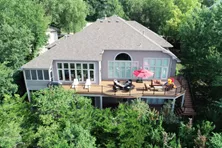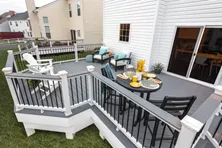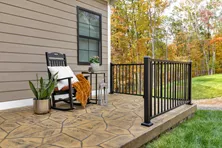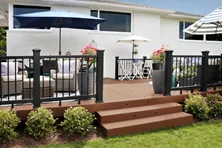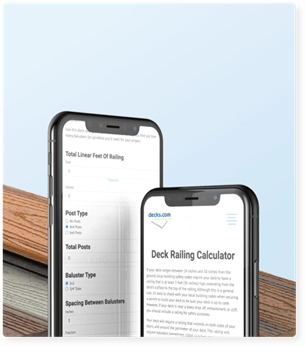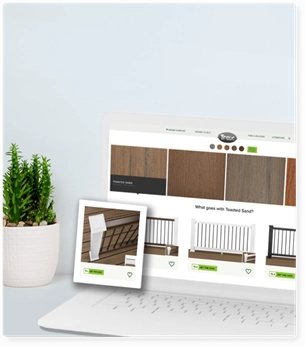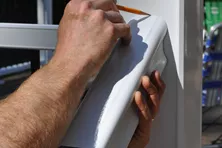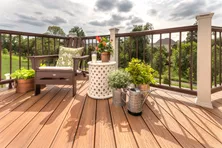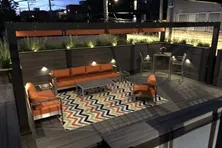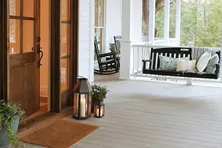Deck Railing Codes
All decks higher than 30" above grade must have a guardrail. If you choose to install a guardrail on a deck lower than 30", the railing must still meet code requirements. Decks attached to single family detached homes are generally regulated under the rules of the International Residential Code (IRC). The IRC requires guardrails to be at least 36" in height, measured from the deck surface to the top of the rail. Note that some local jurisdiction or state require higher, such as 42" in California. Commercial decks attached to multi-family buildings, such as apartment buildings or businesses, are regulated under the International Building Code (IBC). The IBC requires 42" high guardrails. In either case, you are allowed to build taller guardrails as long as they conform to all other requirements stated in the code.
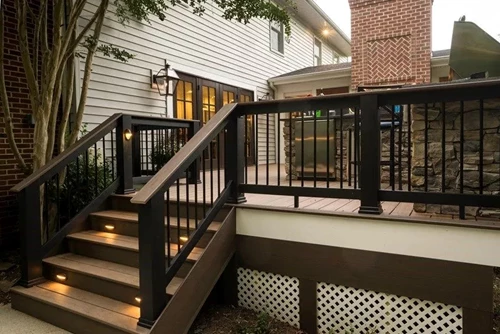
A variety of styles are allowed as long as the interior sections of the rail don’t possess any openings large enough to pass a 4” diameter sphere through. In the case of guardrails for stairs, there is an exception that allows up to a 6” diameter sphere through the triangle opening formed by the stair riser, stairtread and bottom rail. The guardrails must be strong enough to withstand a concentrated 200 lb. force anywhere along the top of the rail.
There is also a safety factor required by the code, so testing loads are higher for manufactured railing systems. To achieve this, you should check to make sure you meet the post spacing requirements for the type of posts you are using and how they are attached to the deck. The sweep space between the deck surface and the bottom rail must be less than 4".
Decks more than 30 inches above the ground must have a railing (referred to as a “guard” in building codes) with a top rail at least 36 inches above the deck surface. However, some states and municipalities require railings to be 42 inches high. The openings between balusters or between the bottom rail and the decking must not exceed 4 inches. Additionally, the triangular gaps formed by stair treads, risers, and the bottom rail must be small enough to prevent the passage of a sphere larger than 6 inches.
Engineered railing systems must be tested and certified to meet IRC and IBC building codes. The tests include:
- Infill Load Test: The strength of the balusters are tested so that a one-square foot area must resist 125 lbs. of force.
- Uniform Load Test (for IBC applications): The top rail must be able to sustain 125 lbs./foot length of force applied horizontally or vertically.
- Concentrated Load Test: The top rail must be capable of holding a point load of 500 lbs. of force applied to the mid span, on the side of a post and on top of a post.
A safety factor of 2.5 is included in the numbers listed above.
Glass Deck Railing Ideas and DIY Installation Tips
All glass panels used for deck railings must be safety-tempered and shatter-resistant. Learn how to install glass railing panels and get ideas for your deck.
Low-Maintenance Composite Deck Railing Options
Composite railing systems offer a low-maintenance alternative to traditional wood railings. Learn why composite is the best railing system at Decks.com.
Parts of a Deck Railing
We discuss the different components that compose a wood deck rail system. Learn about rail posts, top and bottom rails, balusters and a top cap.
Deck Skirting
Skirting can be an attractive feature that can be added to any low-level deck.
Best Outdoor Patio Umbrellas
These are the best outdoor umbrellas for your patio or deck to keep you cool on those sunny summer days. Check out our top umbrella picks at Decks.com.
The Best Outdoor Lights for Your Backyard & Deck
Adding lighting to your deck or patio is important for both style and function. Check out our recommendations for the best outdoor lights to illuminate your backyard.
More Helpful Resources
Explore Articles by Topic

Footings
Information related to installing frost footings for decks
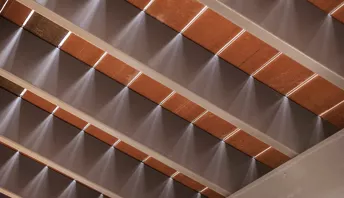
Framing
Learn structural framing methods
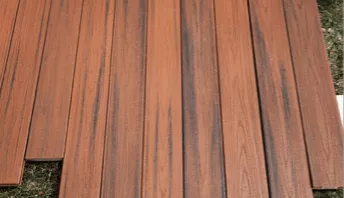
Decking
Learn about wood and composite decking materials
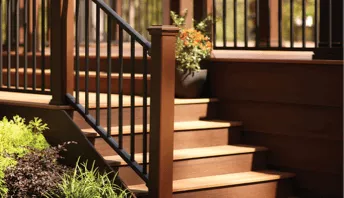
Stairs
An in-depth look at the complex issue of how to build stairs
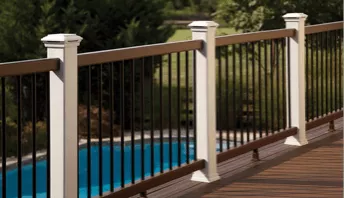
Railings
How to install guardrails and handrails to meet IRC code
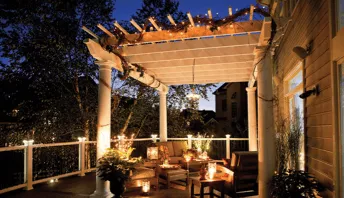
Features
An overview on water drainage, benches, planters and lights
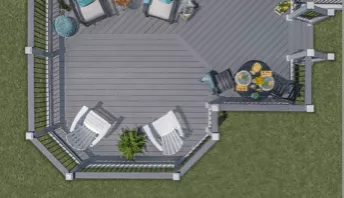
Design
The basics of deck design
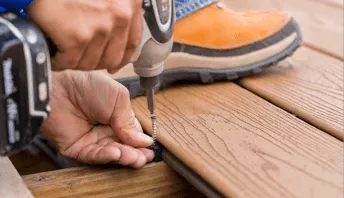
Planning
Learn about permits and working with contractors
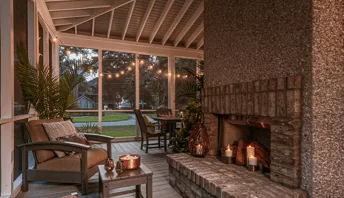
Porches & Patios
Build a covered deck to enjoy all seasons
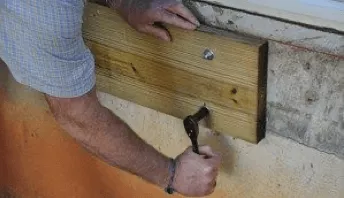
Ledger
Proper attachment techniques
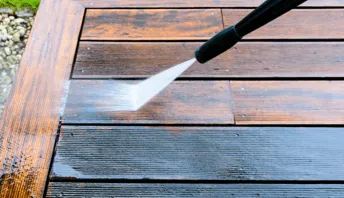
Care
Maintain your deck to maintain your investment
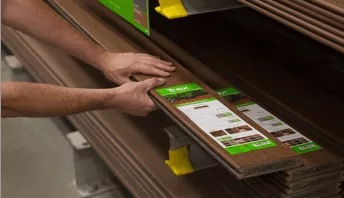
Materials
An overview on water drainage, benches, planters and lights
Deck Railing Safety for the Whole Family
Make your deck safe for everyone who uses it. Follow this expert advice on deck railing installation, maintenance and safety features to prevent falls and hazards
Handrails
Learn about the code requirements for installing a grippable handrail for your deck stairs.
How to Choose the Right Deck Railing
As one of the most visible elements of a deck, railings add support, safety and style. Get tips for choosing the right deck railing at Decks.com.
5 Best Ways on How to Hide Trash Cans Outside
Outdoor trash cans can be an unwanted eyesore. Discover how you can easily cover them up and add an extra touch of beauty to your yard.
The Best Outdoor Rugs to Buy
Outdoor rugs are a great way to add additional style and protection to your deck or patio. Check out our recommendations for the best outdoor rugs.
The 9 Best Porch Swings for 2025
Porch swings are a great way to add charm and comfort to any home. Get our recommendations for how to choose the best porch swing.
Explore Articles by Topic

Footings
Information related to installing frost footings for decks

Framing
Learn structural framing methods

Decking
Learn about wood and composite decking materials

Stairs
An in-depth look at the complex issue of how to build stairs

Railings
How to install guardrails and handrails to meet IRC code

Features
An overview on water drainage, benches, planters and lights

Design
The basics of deck design

Planning
Learn about permits and working with contractors

Porches & Patios
Build a covered deck to enjoy all seasons

Ledger
Proper attachment techniques

Care
Maintain your deck to maintain your investment

Materials
An overview on water drainage, benches, planters and lights




